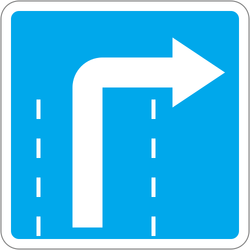mNo edit summary Tag: sourceedit |
(very minor tweak) |
||
| (22 intermediate revisions by 18 users not shown) | |||
| Line 1: | Line 1: | ||
| − | '''[[Help: |
+ | '''[[Help:User rights#Administrators|Administrators]]''', also called admins or sysops, are users with additional tools to help with more advanced wiki maintenance (such as [[Help:Delete|deleting]] and [[Help:Page protection|protecting pages]]). They also have wiki moderation tools like the ability to [[Help:Blocking|block]] users. This gives admins a lot of power, but there's often a question as to what the role of an admin should be and how that power should be used: Are admins meant to be the boss of a community, or are they meant to be something else? |
| − | ==Admins should serve the community== |
+ | == Admins should serve the community == |
| − | + | In a traditional community, admins are expected to serve the community. This may not be the most practical format if you have a very small group of users working on a community. Additionally, each wiki will have its own style and norms. What this means is that admins don't make the rules alone and don't make unilateral decisions. Ideally, admins should use their tools to carry out the will of the community. |
|
[[File:GeneralAssembly.jpeg|thumb|300px|right|Communities should come together to discuss issues and make decisions, rather than being done by a small group of admins.]] |
[[File:GeneralAssembly.jpeg|thumb|300px|right|Communities should come together to discuss issues and make decisions, rather than being done by a small group of admins.]] |
||
| ⚫ | Let's take [[w:c:swfanon|Star Wars Fanon]] as an example. One of the central policies there is the [[w:c:swfanon:Star Wars Fanon:Manual of Style|Manual of Style]], which overviews how articles need to be formatted and put together on the wiki. This was not a policy created by the admins alone, but one that had input from the community and was voted on by the community before it ever became policy. When a Star Wars Fanon admin enforces that policy, they're not enforcing their own arbitrary ideas about what you should do. They're saying "this is what the community would like you to do." That's very important, because it brings a form of democracy to the community. |
||
| ⚫ | Just like in a democracy, when a community votes on decisions rather than all decisions being made by an admin, it sets up an important relationship between admins and the community that says the community is the most important decision-maker for the community. Admins have lots of extra editing tools that non-admins don't have, but community decisions put admins into the position of not being the most important part of a community. |
||
| ⚫ | Let's take [[w:c:swfanon| |
||
| ⚫ | Admins should not be thought of as bosses or rulers, but as guides who are no more or less important or influential than any other user in the community. All users on communities should be equal, even those who have a few extra editing tools. After all, if admins were the only important people on the wiki, then there would be no need for users. That would certainly make building a community difficult! The title of administrator would not mean anything were it not for the non-administrators that make up most of a community, because admins are there to serve the community. |
||
| ⚫ | Just like in a democracy, when a |
||
| ⚫ | |||
| ⚫ | Admins should |
||
| ⚫ | |||
| − | |||
| ⚫ | |||
| ⚫ | |||
| − | |||
| ⚫ | Admins are often those who interact with the largest number of community members. |
||
| − | |||
| ⚫ | |||
| − | |||
| ⚫ | Let's create a scenario here where a user isn't formatting a page correctly. Perhaps there are certain items that need to be italicized |
||
| − | |||
| ⚫ | :''Hello. Please read our article guidelines. Your recent edits have not followed our rules, and you need to read |
||
| ⚫ | Admins are often those who interact with the largest number of community members. This may be to give out warnings, provide corrections, or block users in some cases. Before an admin ever gets to that point, it's a good idea to remain helpful and to try and guide users to an understanding of the community-decided rules. Admins should be willing to provide in-depth support for users as they learn to contribute and better understand local policies. |
||
| ⚫ | |||
| ⚫ | Let's create a scenario here where a user isn't formatting a page correctly. Perhaps there are certain items that need to be italicized or maybe there are specific spelling and grammar rules (American English vs. British English, for example) as there are on Star Wars Fanon. Here is one way an admin could talk to a user about that: |
||
| ⚫ | : ''Hello. Please read our article guidelines. Your recent edits have not followed our rules, and you need to read and follow them when you make your next edits. Further infractions may lead to an official warning from an administrator, or you may be blocked for a short time. Thank you for your cooperation.'' |
||
Here is another way: |
Here is another way: |
||
| ⚫ | : ''Hi there! I've been following some of your edits and you've done a really good job so far, but there are a few things that could use some improvement so that they follow our article guidelines. First, you want to make sure that you are using the preferred spelling. We use American English here, so a word like "armour" should be spelled "armor" in articles. I know the rules can seem overwhelming, but I'm here to help. Feel free to leave me a message whenever you want, and I'll be happy to lend a hand. Thanks!'' |
||
| − | |||
| ⚫ | :''Hi there! I've been following some of your edits and you've done a really good job so far, but there are a few things that could use some improvement so they follow our article guidelines. First you want to make sure that you are using the preferred spelling. We use American English here, so a word like |
||
| − | |||
If you were to take a look at those two styles, which do you prefer? In terms of being helpful, the second one is undoubtedly better than the first. The first one makes a general statement about how someone is not following the rules, but it does not say how. It threatens the user rather than offering assistance, which can be pretty discouraging - especially for new editors. It also feels very mechanical and not at all personal, as if a robot had written it instead of a real person. |
If you were to take a look at those two styles, which do you prefer? In terms of being helpful, the second one is undoubtedly better than the first. The first one makes a general statement about how someone is not following the rules, but it does not say how. It threatens the user rather than offering assistance, which can be pretty discouraging - especially for new editors. It also feels very mechanical and not at all personal, as if a robot had written it instead of a real person. |
||
| − | The second one, on the other hand, is much more helpful. It tells someone exactly what it is that they need to improve upon, as well as how to improve upon it. It offers a clear sense that they can get help when they need it, and doesn't include threats. If someone ignores you after multiple attempts |
+ | The second one, on the other hand, is much more helpful. It tells someone exactly what it is that they need to improve upon, as well as how to improve upon it. It offers a clear sense that they can get help when they need it, and doesn't include threats. If someone ignores you after multiple attempts to help, then you can move on to giving warnings. This way, you can help users and guide them towards becoming great contributors. |
| − | ==Admins are important!== |
+ | == Admins are important! == |
| − | + | You don't want to mistake deference to the community for unimportance. Basic admin tasks like deletions and blocking may make the role of an admin seem mundane. However, admins play a crucial role in making sure that a community operates smoothly. While admins should not make all of the decisions, they can certainly be very helpful in making sure that users know how to follow local rules. |
|
| − | ==What if I need more help?== |
+ | == What if I need more help? == |
| − | There are plenty of resources for you! Our [[Help: |
+ | There are plenty of resources for you! Our [[Help:Contents|Help pages]] provide great overviews of all sorts of aspects of community management. Feel free to check out [[w:Special:Forum|Community Central forums]] where users from across Fandom can give you the assistance you need. |
| − | ==See also== |
+ | == See also == |
| − | *[[Help:Administrators' how-to guide]] |
+ | * [[Help:Administrators' how-to guide|Administrators' how-to guide]] |
| − | *[[Help:Bureaucrats' how-to guide]] |
+ | * [[Help:Bureaucrats' how-to guide|Bureaucrats' how-to guide]] |
| − | |||
| − | ==Further Help & Feedback== |
||
| − | {{Help and feedback section}} |
||
| + | == Further help and feedback == |
||
| ⚫ | |||
| ⚫ | |||
| + | [[pt:Ajuda:Melhores práticas para administradores]] |
||
| + | [[tr:Yardım:Yöneticiler için en iyi yöntemler]] |
||
| + | [[zh:Help:管理员最佳实践]] |
||
[[Category:Administration help]] |
[[Category:Administration help]] |
||
[[Category:Help]] |
[[Category:Help]] |
||
| − | |||
| ⚫ | |||
| ⚫ | |||
Revision as of 22:46, 1 September 2020
Administrators, also called admins or sysops, are users with additional tools to help with more advanced wiki maintenance (such as deleting and protecting pages). They also have wiki moderation tools like the ability to block users. This gives admins a lot of power, but there's often a question as to what the role of an admin should be and how that power should be used: Are admins meant to be the boss of a community, or are they meant to be something else?
Admins should serve the community
In a traditional community, admins are expected to serve the community. This may not be the most practical format if you have a very small group of users working on a community. Additionally, each wiki will have its own style and norms. What this means is that admins don't make the rules alone and don't make unilateral decisions. Ideally, admins should use their tools to carry out the will of the community.

Communities should come together to discuss issues and make decisions, rather than being done by a small group of admins.
Let's take Star Wars Fanon as an example. One of the central policies there is the Manual of Style, which overviews how articles need to be formatted and put together on the wiki. This was not a policy created by the admins alone, but one that had input from the community and was voted on by the community before it ever became policy. When a Star Wars Fanon admin enforces that policy, they're not enforcing their own arbitrary ideas about what you should do. They're saying "this is what the community would like you to do." That's very important, because it brings a form of democracy to the community.
Just like in a democracy, when a community votes on decisions rather than all decisions being made by an admin, it sets up an important relationship between admins and the community that says the community is the most important decision-maker for the community. Admins have lots of extra editing tools that non-admins don't have, but community decisions put admins into the position of not being the most important part of a community.
Admins should not be thought of as bosses or rulers, but as guides who are no more or less important or influential than any other user in the community. All users on communities should be equal, even those who have a few extra editing tools. After all, if admins were the only important people on the wiki, then there would be no need for users. That would certainly make building a community difficult! The title of administrator would not mean anything were it not for the non-administrators that make up most of a community, because admins are there to serve the community.
Admins should be friendly guides
We've established now that admins shouldn't be rulers and that decision-making should be something done by the entire community of users. You may be asking, though, if admins aren't there to make all the decisions, what can admins really do except push buttons?
Admins are often those who interact with the largest number of community members. This may be to give out warnings, provide corrections, or block users in some cases. Before an admin ever gets to that point, it's a good idea to remain helpful and to try and guide users to an understanding of the community-decided rules. Admins should be willing to provide in-depth support for users as they learn to contribute and better understand local policies.

Admins are friendly helpers who can guide users toward becoming awesome editors.
Let's create a scenario here where a user isn't formatting a page correctly. Perhaps there are certain items that need to be italicized or maybe there are specific spelling and grammar rules (American English vs. British English, for example) as there are on Star Wars Fanon. Here is one way an admin could talk to a user about that:
- Hello. Please read our article guidelines. Your recent edits have not followed our rules, and you need to read and follow them when you make your next edits. Further infractions may lead to an official warning from an administrator, or you may be blocked for a short time. Thank you for your cooperation.
Here is another way:
- Hi there! I've been following some of your edits and you've done a really good job so far, but there are a few things that could use some improvement so that they follow our article guidelines. First, you want to make sure that you are using the preferred spelling. We use American English here, so a word like "armour" should be spelled "armor" in articles. I know the rules can seem overwhelming, but I'm here to help. Feel free to leave me a message whenever you want, and I'll be happy to lend a hand. Thanks!
If you were to take a look at those two styles, which do you prefer? In terms of being helpful, the second one is undoubtedly better than the first. The first one makes a general statement about how someone is not following the rules, but it does not say how. It threatens the user rather than offering assistance, which can be pretty discouraging - especially for new editors. It also feels very mechanical and not at all personal, as if a robot had written it instead of a real person.
The second one, on the other hand, is much more helpful. It tells someone exactly what it is that they need to improve upon, as well as how to improve upon it. It offers a clear sense that they can get help when they need it, and doesn't include threats. If someone ignores you after multiple attempts to help, then you can move on to giving warnings. This way, you can help users and guide them towards becoming great contributors.
Admins are important!
You don't want to mistake deference to the community for unimportance. Basic admin tasks like deletions and blocking may make the role of an admin seem mundane. However, admins play a crucial role in making sure that a community operates smoothly. While admins should not make all of the decisions, they can certainly be very helpful in making sure that users know how to follow local rules.
What if I need more help?
There are plenty of resources for you! Our Help pages provide great overviews of all sorts of aspects of community management. Feel free to check out Community Central forums where users from across Fandom can give you the assistance you need.
See also
Further help and feedback
- Browse and search other help pages at Help:Contents
- Check Fandom Community Central for sources of further help and support
- Check Contacting Fandom for how to report any errors or unclear steps in this article
